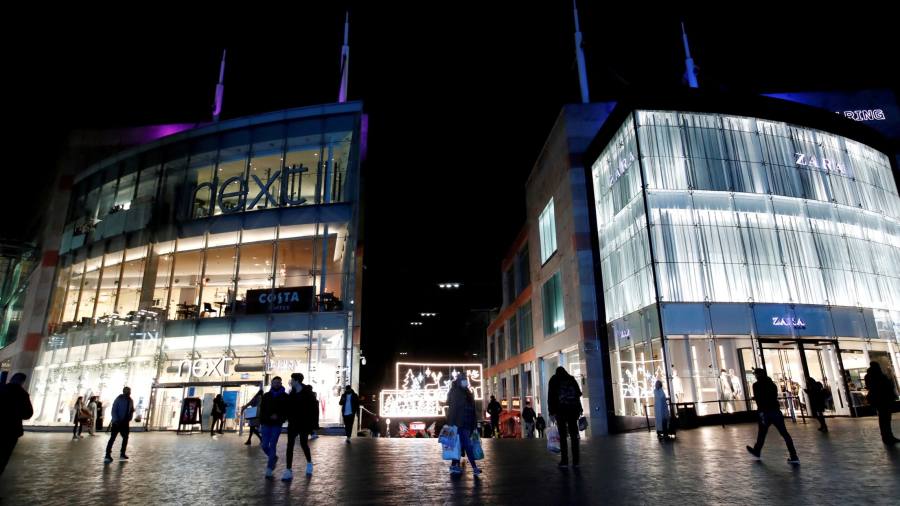
A rebound in in-person shopping and demand from retailers for new space has given a boost to struggling mall landlord Hammerson, pushing shares in the company up by almost 10 per cent.
Hammerson said on Tuesday that it expected adjusted earnings for the year to be £100mn or more, above analysts’ consensus estimates of £92mn as the number of shoppers visiting its centres in the UK, France and Ireland approaches pre-Covid levels.
The return of shoppers to physical stores is a welcome relief for Hammerson, which owns malls including the Bullring in Birmingham and Dundrum Town Centre in Dublin.
It also provides hope that the long decline in the popularity of shopping centres — which has already claimed the scalp of a number of Hammerson’s peers — may not be terminal.
Mall landlords suffered acutely early in the coronavirus pandemic as in-store shopping collapsed and retailers struggled to pay rent. Shares in Hammerson are down more than 80 per cent since the start of 2020.
Since joining as chief executive two years ago, Rita-Rose Gagné has aimed to slash debt and sell off assets in an attempt to avoid the fate of its largest rival Intu, which fell into administration in 2020.
The company on Tuesday offered signs that strategy may be paying off.
Hammerson has signed 221 new leases and increased its gross rental income by 11 per cent so far this year.
The landlord said leisure businesses were accounting for a growing share of tenants, alongside retailers and food and beverage companies.
The company, which is listed in London and Dublin, has collected 93 per cent of the rent it is owed by tenants for the current quarter, and expects that figure to increase in the coming months.
Hammerson sold off almost £200mn of assets in the first half of the financial year.
The company has been forced to sell into a tough market, with shopping centre values falling sharply over the past five years, but pointed to signs that values could be bottoming out as it prepares to sell properties worth a further £300mn over the next year.
Hammerson said yields — which move inversely to prices — on its best properties had remained stable over the past three months, having risen consistently in recent years.
But analysts warned that the company still had little room for manoeuvre.
“Despite stabilising capital values the shares have been sold off, along with the rest of the sector, in the expectation of a looming recession and falling consumer spending,” said Stifel analyst Sam King in a note.